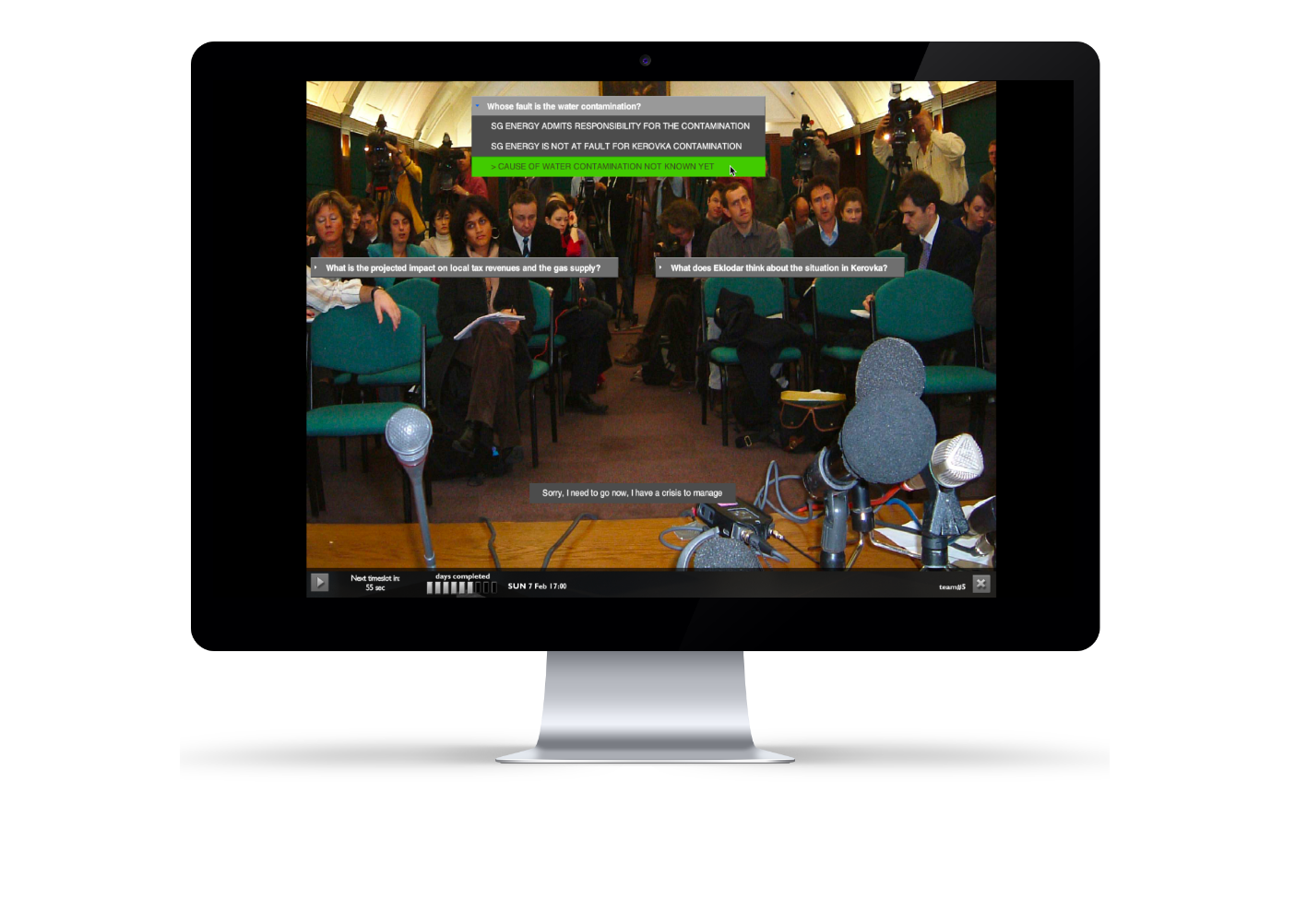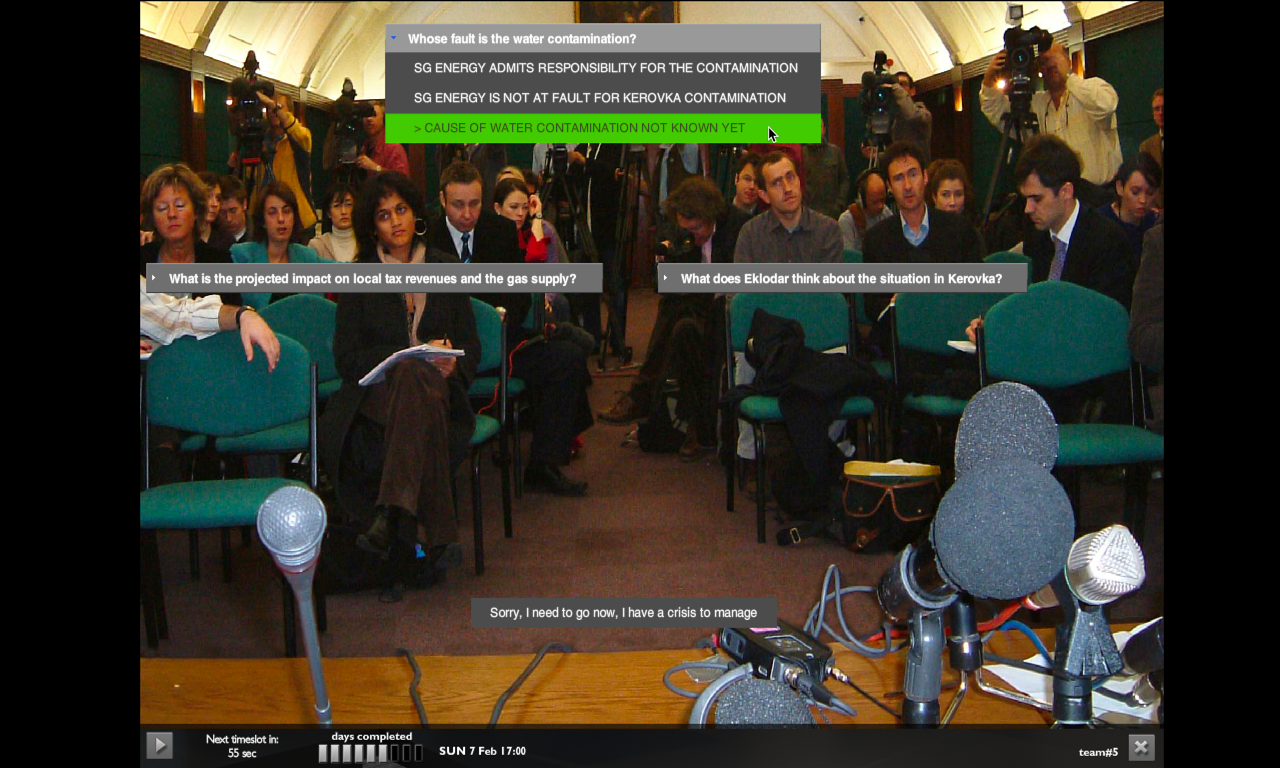The challenge of... managing crisis scenarios
Leaders do not have to deal with a crisis every day. But when crises do occur, the decisions and actions taken can have a huge impact not just on the organisation’s reputation, but on the internal and external stakeholders involved. Handled badly, a crisis can cause major damage to an organisation’s reputation and shareholder value; handled well, a crisis can be an opportunity to improve an organisation’s reputation.
Organisations often articulate their approach to this challenge as…
- crisis resolution
- crisis management
- crisis response plan
- crisis communications plan
- disaster management & disaster recovery strategy
- managing reputation / reputation management

Find a solution for your challenge
Our range of pioneering simulations address the needs of modern leaders, offering engaging and effective learning.
A crisis is “any event or period that will lead, or may lead, to an unstable and dangerous situation affecting an individual, group, or all of society. Crises are negative changes in the human or environmental affairs, especially when they occur abruptly, with little or no warning. More loosely, a crisis is a testing time or an emergency.” (Wikipedia)
Crisis management is “the process by which an organisation deals with a disruptive and unexpected event that threatens to harm the organisation or its stakeholders” (Wikipedia)
- lack of preparation
- delaying acknowledgement of a crisis
- lack of transparency
- letting media dictate the agenda
- not listening to those affected
- lack of empathy
- misjudging information dynamics
- slow decision making
Management of crisis scenarios
is necessary in many contexts, including:
Health: Pandemics
Technological breakdowns & business interruptions: Data loss, service shutdowns; Supply chain shortages and stoppages
Product recalls: Cars, drugs, food and drink, consumer goods
Crimes & malevolence: Data theft; Terrorist attacks
Real world challenges
Prendo’s customers face many challenging situations when managing crisis scenarios:
Advanced simulations can help leaders address these real world challenges
At Prendo, we believe that the complex skills and deep understanding that are needed for managing crisis scenarios are best developed with advanced simulations that provide accelerated experiential learning and the opportunity to explore the underlying cause and effect models.
Talk to us to understand if our simulations can address your specific challengesLearning to manage crisis scenarios
To address the challenge of managing crisis scenarios, leaders need a combination of skills (know-how) and understanding (know-that), in the same way that the driving test combines the practical and the theory:
leaders need to be able to…
- adapt to new information and make rapid decisions
- manage the media
- develop trust with stakeholders
- protect and manage organisational reputation
- protect shareholder value
- quantify stakeholder driven risks & opportunities
as part of an overall strategy or plan for managing crisis scenarios
leaders need to understand…
- the determinants of (and what is impacted by) reputation
- the determinants of (and what is impacted by) trust
- the dynamics of the media and the 24/7 news cycle
